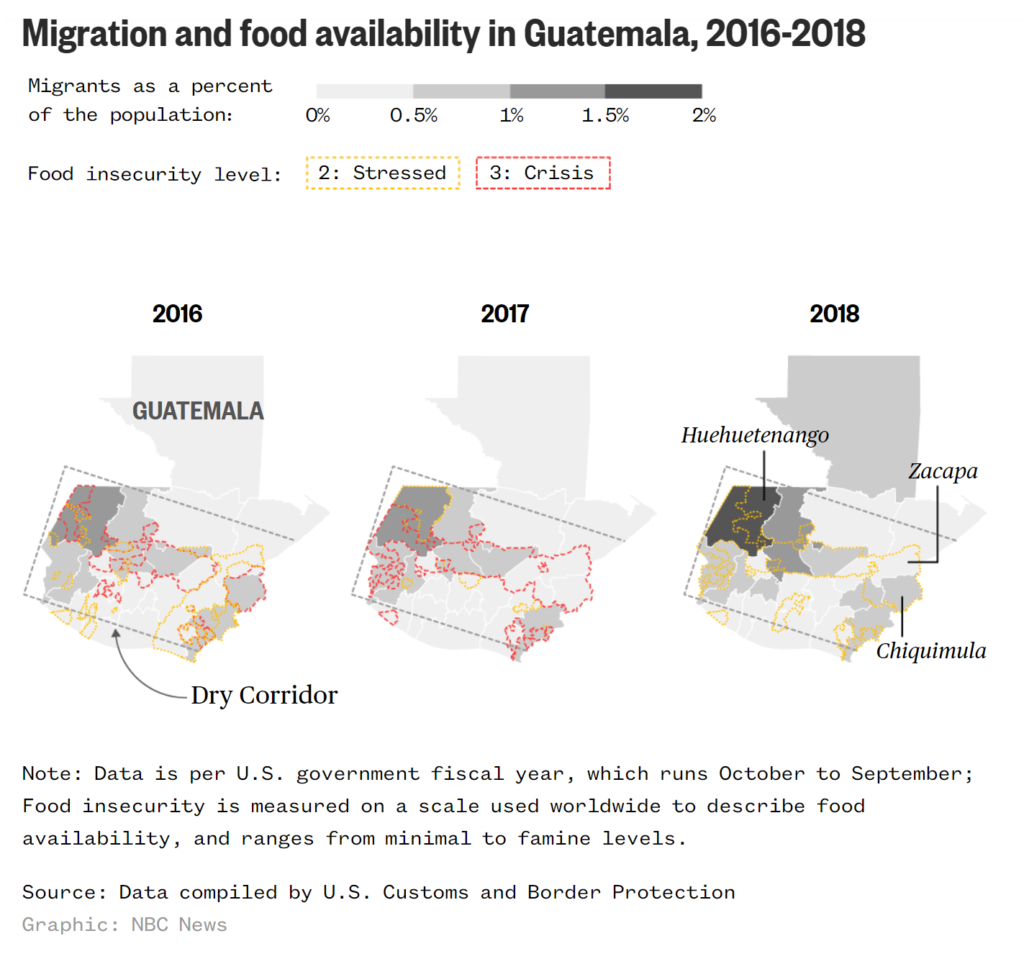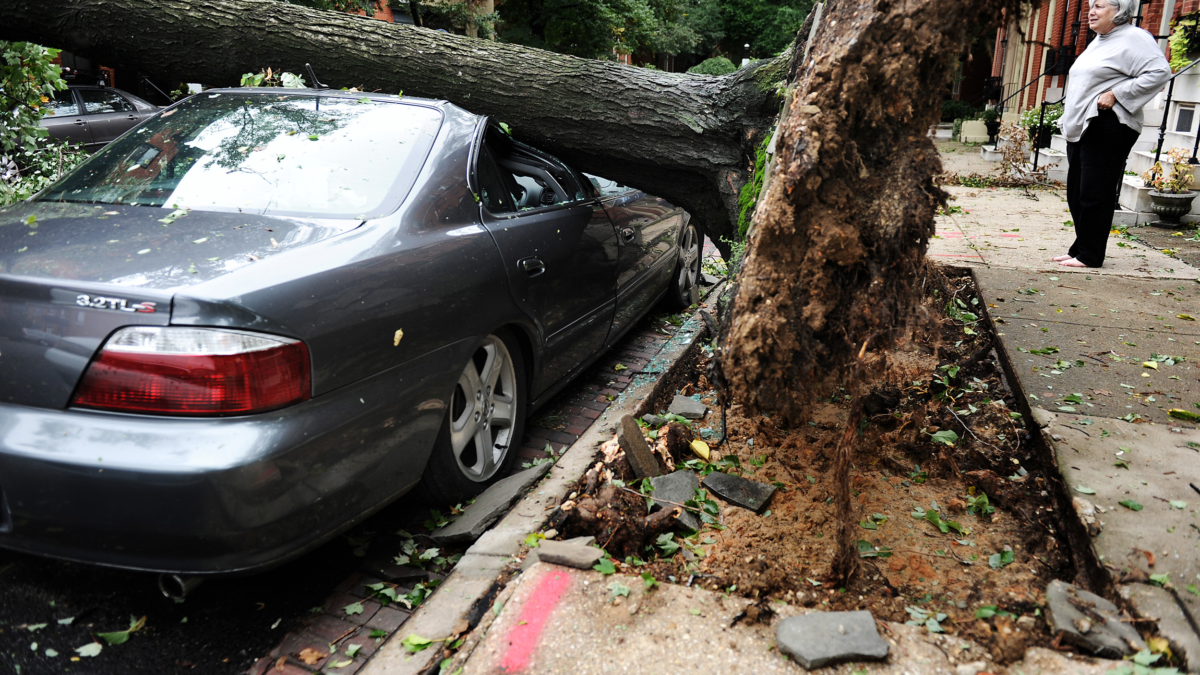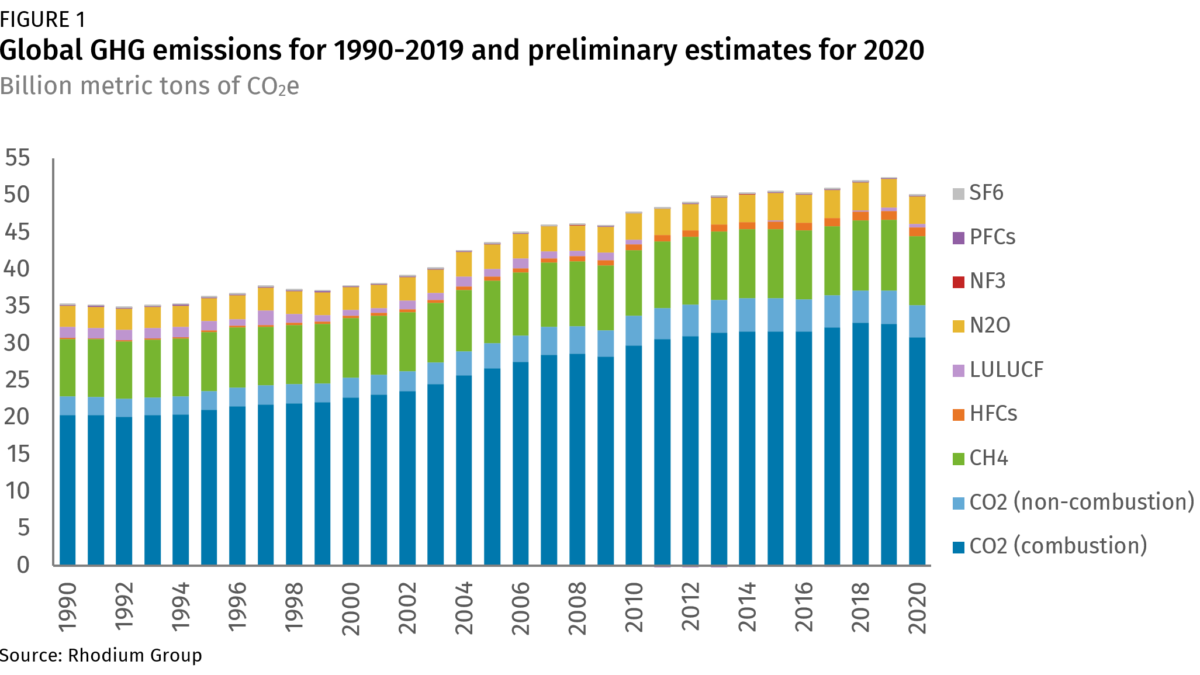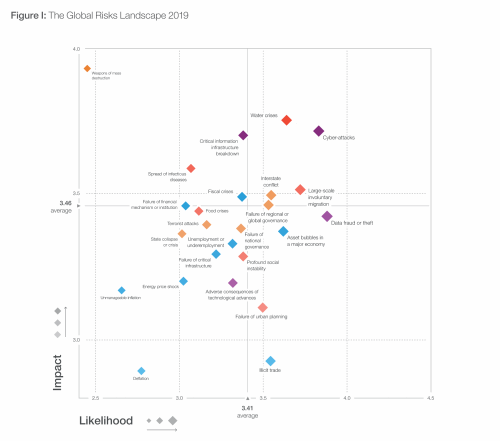Trump admin ignored its own evidence of climate change’s impact on migration from Central America

By Jacob Soboroff and Julia Ainsley
20 September 2019
GUATEMALA CITY (NBC News) – Research compiled one year ago by Customs and Border Protection pointed to an overwhelming factor driving record-setting migration to the U.S. from Guatemala: Crop shortages were leaving rural Guatemalans, especially in the country’s western highlands, in extreme poverty and starving.
An internal report that was circulated to senior Homeland Security officials and obtained by NBC News showed that migration surged from those areas of Guatemala without reliable subsistence farming or wages from commercial farming jobs. More than 100,000 Guatemalans headed north last year, and many more followed in fiscal year 2019, making Guatemala the single largest country contributing to undocumented immigration across the U.S. southwest border this year.
Scientists have said the increase in poverty and food insecurity driving migration are due to multiple factors, one of which is climate change.
The acting secretary of the Department of Homeland Security, which oversees CBP, Kevin McAleenan, has publicly sounded the alarm about Guatemala’s food scarcity.
But inside the Trump White House, that message was largely ignored in both policy decisions and messaging around what should be done to stem the flow of migrants. Last October, a month after the CBP report was finalized, President Donald Trump announced he was considering suspending foreign aid to Guatemala, which included money used to mitigate the affects of climate change on small farms. […]
With evidence of a correlation between acute food insecurity and migration in hand, the Trump administration instead focused on an agreement with the government of Guatemala to stem the flow of immigrants through law enforcement means.
Law enforcement over food aid
Under the agreement with Guatemala, an outline of which was obtained by NBC News, nearly 90 Americans from Immigration and Customs and Enforcement and CBP are slated to deploy to Guatemala to stop immigrants from other Central American countries from passing through their borders on the way to the U.S. Vehicles and equipment to help Guatemalan law enforcement are also included in the deal, which was outlined in May and solidified in July.
The outline states: “Enhancing border security is sought in order to reduce irregular migration flows; carry out the necessary training to support and enhance criminal investigations; concrete actions to counteract human trafficking and human smuggling; and the interdiction of illicit drug trafficking…” Nowhere in the agreement is food insecurity or foreign aid mentioned. […]
A DHS official said the high turnover inside the agency has made officials nervous about keeping their jobs and anxious to please the White House, particularly senior adviser Stephen Miller. “Everyone knows Miller isn’t interested in hearing about climate change,” the DHS official said. […]
Data-based evidence
In an interview with the Washington Post in September 2018, then-CBP Commissioner McAleenan said, “Food insecurity, not violence, seems to be a key push factor informing the decision to travel from Guatemala, where we have seen the largest growth in migration flow this year.”
He based his position largely on interviews conducted by Border Patrol agents with immigrants at the border, where they are routinely asked to be as specific as possible about where they are from. By overlaying that information with data about food insecurity, CBP saw clear evidence of a correlation.
The CBP data made clear that in areas suffering acute food insecurity, like Guatemala’s Huehuetenago, Chiquimula and Zacapa departments, the rates of migration were higher than in areas without food shortage concerns. [more]
Trump admin ignored its own evidence of climate change’s impact on migration from Central America


